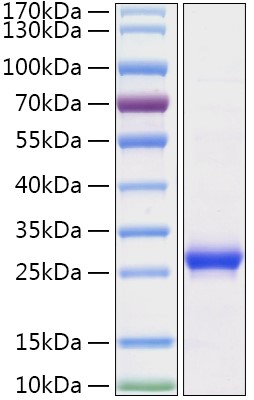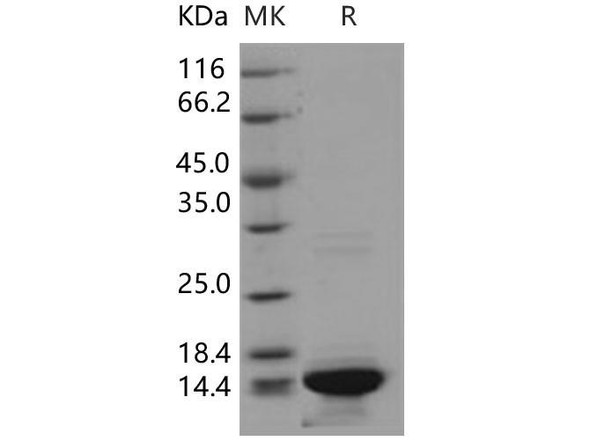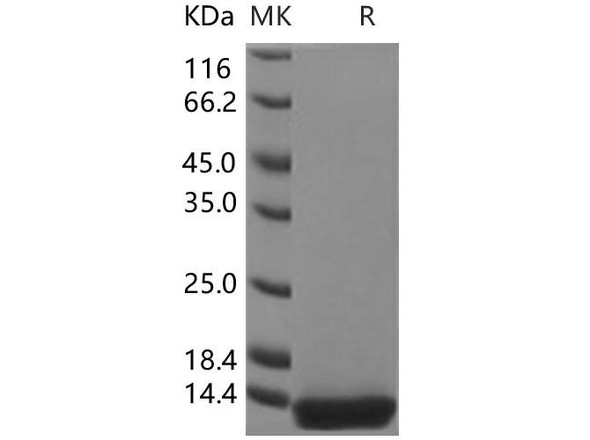Description
Recombinant Human Histone H1 Protein
The Recombinant Human Histone H1 Protein is a biologically active recombinant protein that plays a significant role in various cellular processes and signaling pathways in human biology. This protein is widely employed in immunological research, cell biology studies, protein-protein interaction analyses, and therapeutic development, providing researchers with a reliable tool for investigating Histone H1 function and its implications in health and disease.
This product (SKU: RPCB1951) is produced using advanced expression systems and features a N-His tag for convenient detection and purification. The protein exhibits a calculated molecular weight of 22.4 kDa with an observed molecular weight of 25-30 kDa under denaturing conditions, achieving ≥ 90 % as determined by SDS-PAGE., ensuring exceptional quality and consistency for research applications.
Key Features
| High Purity by Affinity Chromatography | |
| Mammalian & Bacterial Expression Systems | |
| High lot-to-lot consistency via strict QC |
| Product Name: | Recombinant Human Histone H1 Protein |
| SKU: | RPCB1951 |
| Size: | 100 μg |
| Reactivity: | Human |
| Synonyms: | Histone H1, Histone H1.0, H1-0, H1F0, H1FV, CPN60, GROEL, HLD4, HSP60, HSP65, HSPD1, HuCHA60, SPG13 |
| Tag: | N-His |
| Calculated MW: | 22.4 kDa |
| Observed MW: | 25-30 kDa |
| Gene ID: | 3005 |
| Protein Description: | High quality, high purity and low endotoxin recombinant Recombinant Human Histone H1 Protein (RPCB1951), tested reactivity in E.coli and has been validated in SDS-PAGE.100% guaranteed. |
| Endotoxin: | Please contact us for more information. |
| Purity: | ≥ 90 % as determined by SDS-PAGE. |
| Formulation: | Lyophilized from a 0.22 μm filtered solution of 50 mM Tris, 600 mM NaCl, 1 mM DTT, pH 8.5. Contact us for customized product form or formulation. |
| Reconstitution: | Reconstituted with sterile deionized water to 0.1-0.5 mg/mL. |
| Storage: | Store at -20℃.Store the lyophilized protein at -20℃ to -80 ℃ up to 1 year from the date of receipt. After reconstitution, the protein solution is stable at -20℃ for 3 months, at 2-8℃ for up to 1 week. |
Histones are basic nuclear proteins that are responsible for the nucleosome structure of the chromosomal fiber in eukaryotes. Histones H1 is the most variable histone and its role at the epigenetic level is less characterized than that of core histones. The lysine-rich H1 histone family in mammals includes eleven members. In higher eukaryotes, all H1 variants have the same general structure, consisting of a central conserved globular domain and less conserved N-terminal and C-terminal tails. These tails are moderately conserved among species, but differ among variants, suggesting a specific function for each H1 variant.







